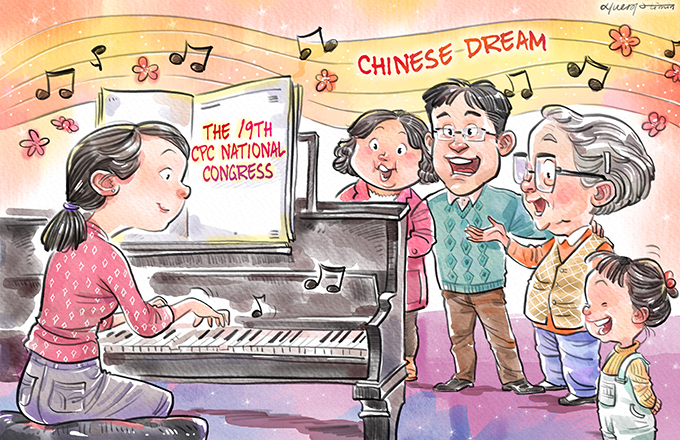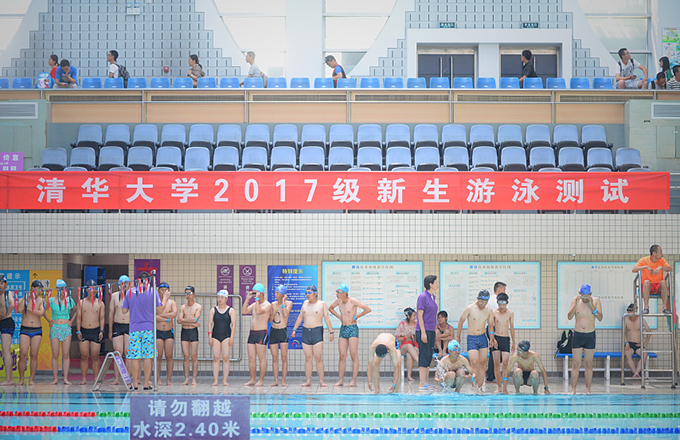Rule of law to write new chapter
Since the 18th National Congress of the Communist Party of China in 2012, the CPC Central Committee with General Secretary Xi Jinping as the core has been promoting the rule of law in an all-round way and adhering to the integrated construction of the country, government and society in accordance with the law to welcome a new, modern era of the rule of law.
The reforms of the rule of law are valuable experiences, and the just-concluded 19th Party Congress laid out a general plan of implementing the rule of law in an all-round way, which will facilitate the great rejuvenation of the Chinese nation.
The strategy of implementing comprehensive rule of law is in line with the evolvement in China's principal social contradiction and its basic national conditions and reality. Xi's scientific judgment that socialism with Chinese characteristics has stepped into a new era comes from his assessment that the principal contradiction in Chinese society has evolved from that "between ever-growing material and cultural needs of the people and backward social production" to one "between unbalanced and inadequate development and the people's ever-growing needs for a better life".
The evolution of the principal social contradiction signifies a historic change in the Party's and the country's overall situation, which poses new challenges and creates new opportunities. To overcome these challenges and seize the opportunities, we should steadfastly follow the Party's leadership and strictly implement the rule of law in an all-round way.
The 19th Party Congress decided to establish a central leading group for advancing law-based governance in all areas, in order to help the leadership to establish the rule of law in an all-round way, because it is essential for developing socialism with Chinese characteristics, which requires top-level design based on real national conditions and practical demands.
The reform plan under the rule of law should be in line with the Constitution and must safeguard the Constitution's authority. In fact, all the reform measures should be in line with the Constitution and laws. The 19th Party Congress has given a call to strengthen implementation and supervision of the Constitution, and promote constitutionality of reviews of laws and regulations. And Xi has pointed out before that the key to governing by the law is governing according to the Constitution, with the 19th Party Congress reiterating the requirement of enhancing the capacity of governing by law.
To reform the rule of law with Chinese characteristics means to promote the rule of law in accordance with the Constitution. Therefore, further reforms should form a unified socialist legal system that is centered on the Constitution, and improve the Constitution's implementation, supervision and interpretation systems.
More importantly, the country should respond to and resolve the significant issues in the new era, such as establishing leadership under the framework of the Constitution and laws.
The reform of the rule of law should be comprehensive and sound, and the CPC Central Committee should strengthen its leadership for legal construction. It should not only mobilize the power of the entire Party, military and society to propel legal construction, but also coordinate the whole process of legislation, law enforcement, judicature and legal education, because only when the people feel they are being fairly treated and getting justice in daily life will they sincerely advocate and safeguard the authority of the law and abide by it.
The rule of law in an all-round way has been listed by the 19th Party Congress as one of the basic strategies for developing socialism with Chinese characteristics in the new era, which shows the Party's profound understanding and recognition of the new historic stage. Under the able leadership of the Party with Xi as the core, the rule of law is expected to play a crucial role in the country's governance and the modernization of governance, and help write a glorious new chapter for the nation.
The author is a professor at the Law School of Renmin University of China.


















